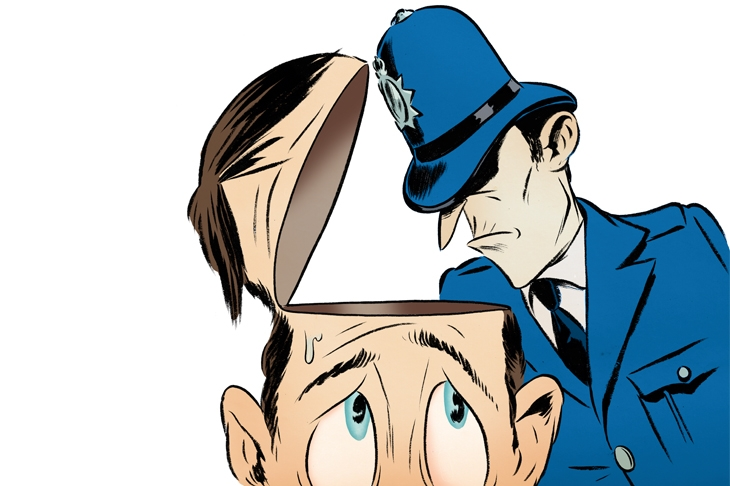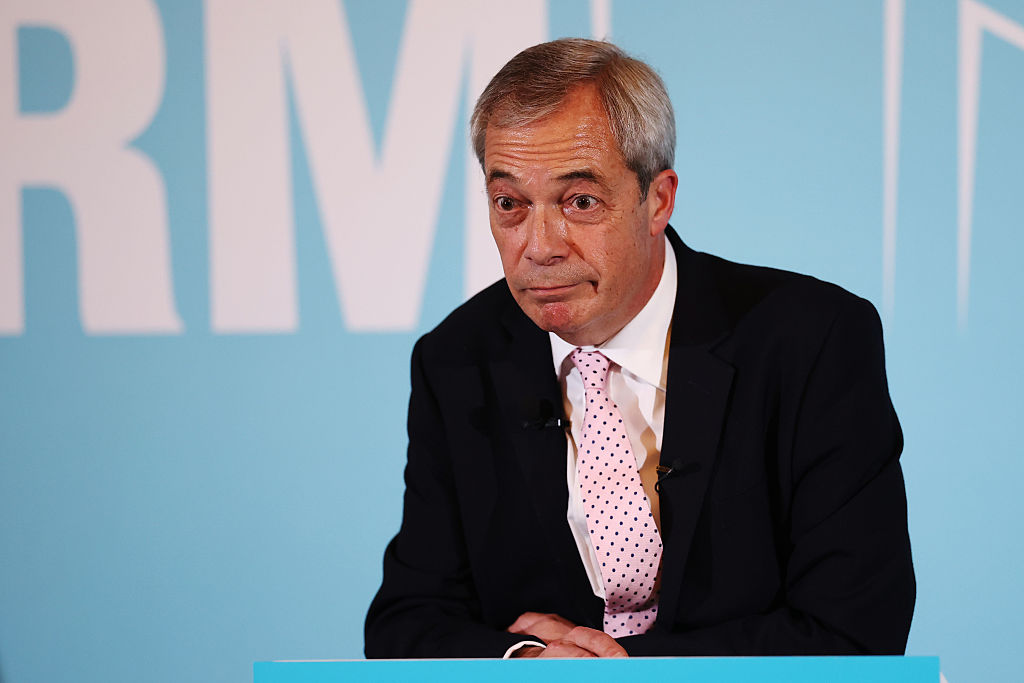The Met has announced that it will stop investigating non-crime hate incidents, or NCHIs. The pressure on other forces to fall into line may well now be hard to resist (we will have to see). But don’t cheer too loudly yet. The devil is in the detail, and there may be less to rejoice over than you think.
An NCHI, to remind you, is any incident ‘perceived’ to be motivated – wholly or partly – by hostility or prejudice towards someone with a particular characteristic. It is noted by police, often secretly, against a person’s name; and while not a criminal record it has effects.
This has all the marks of an instinctively authoritarian government taking the opportunity to announce the very smallest concessions to liberal opinion that it thinks it can get away with
What is new? NCHIs will not be ‘investigated’, we are told. So presumably episodes like those of Harry Miller and journalist Allison Pearson, aggressively telephoned, or in the latter case doorstepped, by police over supposedly offensive social media posts, will cease. And quite rightly so. The waste of police time involved here is palpable. And while high-profile national journalists are likely to give as good as they get, for anyone else a copper at the door asking about a fruity social media post or backyard gossip and suggesting an urgent need to pipe down can be truly terrifying.
This is therefore good news. Also heartening is that this seems logically to mean the final abandonment of the chilling view put forward by the race-obsessed Macpherson report on Stephen Lawrence a quarter of a century ago, that when it came to racism police had to make sure non-crimes were ‘reported, recorded and investigated with equal commitment’ with crimes. Any practice under which police are ordered to treat entirely lawful behaviour, and lawful speech at that, in the same way as they deal with actual crime is monstrous. It should have gone years ago.
But read between the lines, and that seems to be the limit of the good news. Not much else actually seems to be changing. NCHIs will still be recorded. Presumably, moreover, they will remain on someone’s police file. Furthermore, unless they happen incidentally to hear of it or raise a freedom of information request, the person may not even know of it. And note, of course, that for an NCHI there is no need for any actual evidence of hate: all that is required is a perception of hate by someone else, whether well-founded or not, and a vaguely-articulated belief by the police that the episode might carry with it a risk of crime or significant harm (whatever that means).
All this must continue to worry us, for any number of reasons. In the last century the idea that the someone should be burdened with a police record of any sort for the expression of entirely lawful opinions which the administration disapproved of would have been seen as something menacingly eastern European. Its acceptance in 2025 as a facet of ordinary policing shows how far we have fallen. Indeed, here it is worse: the noxious combination of post-modernist theory that perception and consciousness trump old-fashioned facts and a ‘you can’t be too careful’ mentality among the governing classes mean that people may well be given a police rap for opinions they don’t even hold.
And, of course, while it is true that you can’t be prosecuted on account of a NCHI, it can still affect you seriously. Thinking of applying for a sensitive job in teaching or care, or in parts of the civil service? Or perhaps you fancy volunteering to do good work as a churchwarden or Sunday-school teacher? You need a CRB check, and a NCHI, possibly based on a simple misunderstanding of something you once said by someone you don’t know, will presumably still show up. If you are very lucky you might find an appointments committee or HR manager willing to take a broad view, but don’t hold your breath.
Why did the Met make this announcement now? Partly, one suspects, as damage limitation after the Graham Linehan debacle. But there may be more to it than that. The chances are that the commissioner first cleared all this, at least informally, with the Home Office. Shortly after the election the then-Home Secretary, Yvette Cooper, said she strongly backed the NCHI system; there is no evidence that Shabana Mahmood thinks differently.
This has all the marks of an instinctively authoritarian government taking the opportunity to announce the very smallest concessions to liberal opinion that it thinks it can get away with. Doubtless it fervently hopes this will make the bad press attaching to NCHIs go away. It’s up to anyone who believes in liberty to make sure it doesn’t. There is help at hand: last month the Chief Inspector of Constabulary reported that the NCHI system should go wholesale. We should now all back him.







Comments